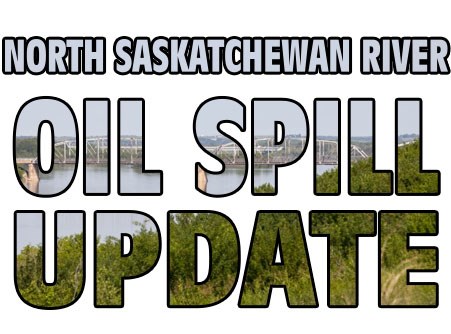Council received its latest water supply update Monday at their regular meeting.
There were no real surprises in the report about the City’s efforts to restore the water supply following the Husky oil spill into the North Saskatchewan River.
City Manager Jim Puffalt reported that Husky and the province continue to be supportive, and that they had met with consulting engineers KGS Group to further discuss the Husky report and the GE filtration system for the intake at F.E. Holliday water treatment plant.
Other highlights included the following:
Water from the town of Battleford continues to be pumped to the F.E. Holliday plant. Puffalt told council that will continue until freeze up.
Watering restrictions were lifted for car washes and gardens before the Labour Day long weekend.
The four additional wells at Water Treatment Plant No. 1 — numbers 25, 26, 27 and 28 — are drilled, commissioned and now in production.
The Saskatchewan Hospital reservoir is being filled from the City supply.
The City is still not watering sports fields and parks until further notice. In fact, there may not be watering at the fields and parks for the rest of the year.
“It’s getting to the time when we wouldn’t be watering anymore anyways,” Puffalt said.
On a related note, councillor Kelli Hawtin asked administration about the state of the sports fields that have had to do without watering for long periods of time. Director of operations Stewart Schafer admitted those “are rough in some areas.”
Hawtin noted she had received some comments about soccer fields in poor condition with reports of dirt patches. She wanted to know if those fields would return to good condition by the spring. Schafer assured Hawtin they should be back into service once they get the water going.
“But until we put water and fertilizer on them, we’re relying on Mother Nature,” said Schafer.
Puffalt added there will be a regular chemical application happening this fall and the fields should be back to normal in the spring.

.png;w=120;h=80;mode=crop)


